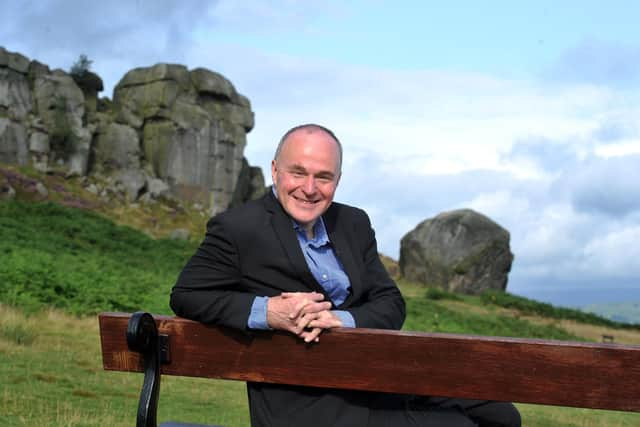The next Parliament should revive the Yorkshire and Humber Grand Committee - John Grogan
As the IPPR North put it ‘The UK continues to stand out internationally for the wrong reason: because it is the most regionally unbalanced large, advanced economy’. With growth at the centre of the national political agenda what is to be done in God’s own country? In the 1990s the late Labour leader John Smith said the creation of a Scottish Parliament was the ‘settled will’ of the nation. The situation in Yorkshire today is more like that in Wales 30 years ago.
There is a strong feeling of regional injustice and frustration at the lack of agency to put things right. Nevertheless, there is no consensus as to what precise institutions and powers are needed.
Advertisement
Hide AdAdvertisement
Hide AdIn addition money is tight so all proposals are likely to be judged on their value for money. Sub-regional devolution has brought benefits with Mayors already in place in West and South Yorkshire, one to be elected in North Yorkshire in 2024 and discussions continuing in Hull and East Yorkshire. The question remains: have the Mayors got enough clout to close that North South gap?


Here are two Yorkshire day ideas for the mid 2020s which build on existing institutions. Firstly what is still missing within our Parliament is a forum for Yorkshire’s MPs, who together represent over five million people, to highlight opportunities and challenges facing the region.
On Thursday 29 October 2009, in the splendid surroundings of the council chamber in Barnsley Town Hall, a unique event occurred. For the first and last time to date, the Yorkshire and Humber Regional Grand Committee of the House of Commons was called to order.
Grand committees are a parliamentary forum for all the MPs who represent a particular nation or region within the UK to meet and consider matters that relate to that area. Their meetings can involve debates on topics of interest, questions to ministers, ministerial statements, and half-hour adjournment debates.
Advertisement
Hide AdAdvertisement
Hide AdRegional Grand Committees for England were established under Gordon Brown’s premiership in November 2008. But the standing orders that set up these committees expired in April 2010 and the Coalition Government that followed did not re-establish them.
The next Parliament should revive the Yorkshire and Humber Grand Committee. It could question Ministers on the progress of high speed rail, hold bodies like Yorkshire Water to account and debate the virtues of giving increased fiscal powers to the county.
Secondly the next Government could make the Yorkshire Leaders Board (which brings together 15 councils along with the Mayors of West and South Yorkshire) a formal partner in delivering the growth agenda. There are some things that are better done at scale at a Yorkshire level (to get more bangs for the buck and to avoid duplication) rather than by an individual mayor or local council.
The Fabian Society summed up the case well in their recent report ‘A good life for all regions’ stating that the Government should ‘enable locally led regional combined authorities – to formalise, enhance and protect pan-regional collaboration…and allow Yorkshire to come together as a single entity’.
Advertisement
Hide AdAdvertisement
Hide AdTourism and inward investment promotion are good examples of the potential benefits of such an approach drawing on the power of the Yorkshire brand.
Cross border transport plans are another obvious area for cooperation. The Board has already set up a regional Climate Change Commission. In the earlier part of this century the Board’s predecessor body was responsible for drawing up a regional spatial strategy.
It is hard to see how new homes will be delivered at scale without something similar in the future. As for economic development the Government quietly announced in the budget a consultation to close local enterprise partnerships which bring Yorkshire councils and businesses together to promote growth. In 2010 these replaced the more powerful and better resourced regional development agency called Yorkshire Forward.
The growth gap between London and Yorkshire is unlikely to be closed without further action at a regional level.
Advertisement
Hide AdAdvertisement
Hide AdMoreover, there are a number of public bodies which could be made accountable to the Board rather than to Whitehall such as the Regional Schools Commissioner who oversees academies, the Regional Arts Council and the Yorkshire Flood and Coastal Committee. Yorkshire’s twelve universities have already got their act together and formed a partnership. Their statement of intent is a rallying cry for the benefits of collaboration across the region
John Grogan is co-chair of One Yorkshire.